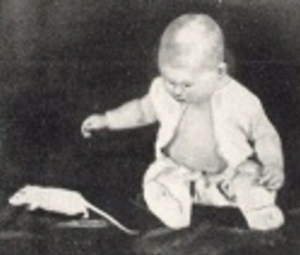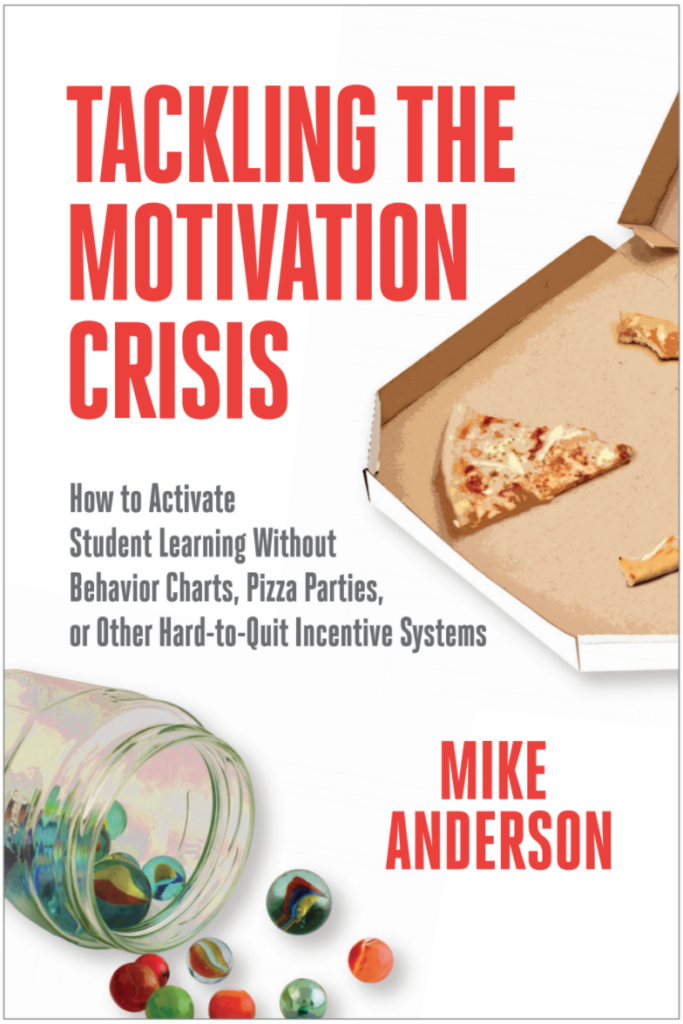Drooling Dogs and the Birth of Behaviorism
A Brief History of Behaviorism, Part 1
If you could travel back in time about 60 years and walk through a typical school, you might be surprised to find something missing. You wouldn’t see behavior charts or “star student” award posters. You wouldn’t see teachers handing out “cougar bucks” to children walking quietly in hallways or kids being promised pizza if they worked hard during math time. Token economy systems like these hadn’t yet been invented. Have you ever wondered, where did these systems come from?
While writing Tackling the Motivation Crisis: How to Activate Student Learning Without Behavior Charts, Pizza Parties, or Other Hard-to-Quit Incentive Systems, I researched behaviorism, the branch of psychology that birthed these systems. What I learned was fascinating, and it helped me better understand where these incentives systems that are so common (and damaging, by the way) came from. I’m excited to share some of what I learned in this series of blog posts. Enjoy!
Drooling Dogs and the Birth of Behaviorism
For many years, psychology was dominated by the work of Sigmund Freud and psychoanalysts who focused on dreams and inner drives, and some people in the field were uncomfortable with this territory. They felt that psychology needed to follow in the footsteps of the natural sciences and focus on observable, quantifiable data. Instead of focusing on things that couldn’t be seen such as dream interpretation and inner desires (which made psychology feel more akin to philosophy), they wanted to focus on what could be seen: behaviors.
A Pavlovian Idea
The most famous early behaviorist was a Russian theorist named Ivan Petrovich Pavlov. You have likely heard of his work involving drooling dogs, which actually began accidentally. Dogs, like people, salivate when they eat. It’s a biological response to help with digestion. When feeding his own dogs, Pavlov noticed this his dogs salivated before they were fed—in anticipation of eating. Just the sounds of footsteps approaching at mealtime was enough to induce the involuntary response. (In my house, our dogs’ cues are even more dramatic, involving bouncing, prancing, and vigorous tail-wagging.)

Pavlov wondered, could he induce dog-drooling in other ways? In one simple experiment, dogs that repeatedly saw a light just before they were fed began to salivate when shown a light. They had been conditioned to salivate when shown a light. Pavlov conducted numerous experiments on animal physiology, but interestingly, he did not view his work as part of psychology. In fact, he fined lab assistants who made any reference to dogs’ feelings or inner knowledge. However, his research fueled the work of future behaviorists, who focused on stimuli, responses, and observable behaviors. (For more about Pavlov, check out p. 180-182 in William Crain’s excellent book, Theories of Development: Concepts and Applications.)
Enter John B. Watson and Little Albert

It was another man, John B. Watson, who took physiological work with animals and began applying it to human psychology. His work was controversial and by today’s standards, unethical. In one experiment, he and his graduate student, Rosalie Rayner, took an 11-month-old orphan and conditioned him to fear a white rat. The child, known as Little Albert, initially showed no fear of the rat. Experimenters then presented him with the rat and made a sharp loud noise by striking a metal bar behind his head, causing the startle reflex. After several trials, Albert began to cry and tried to escape when showed the white rat. Little Albert then generalized this fear to other fuzzy white objects. They had conditioned a phobia in Little Albert.
As troubling as this experiment was, it did lead to some beneficial results. The process could also work in reverse—to help people overcome fears through conditioning—what later became known as systematic desensitization—a form of behavioral modification. Through this process, someone afraid of snakes, for example, can gradually be exposed to snakes in conjunction with a pleasant experience (having a soothing cup of tea, perhaps). Over time, the person’s fear will gradually dissipate as they associate feelings of relaxation instead of fear when seeing a snake.
Where Do You Think Watson Falls on the Nature-Nurture Discussion?
As we consider how behaviorism became such a part of the fabric of schools, it’s important to note that Watson was a strong (and perhaps the first) advocate for using his behavioral techniques to train children. He believed that the environment was the sole shaper of behavior. If you could control children’s environment, you could train them to be whatever you wanted. He once famously stated: “Give me a dozen healthy infants, well-formed, and my own specified world to bring them up in and I’ll guarantee to take any one at random and train him to become any type of specialist I might select—doctor, lawyer, artist, merchant, chief, and yes, even beggar-man and thief, regardless of his talents, penchants, tendencies, abilities, vocations, and race of his ancestors” (Behaviorism, by John Watson, originally published in 1924, p. 110).
The idea of using behavioral modification techniques designed for animals to train children was taken to new levels by someone whose work would reshape the landscape of parenting and schooling in the United States.
To read on, check out the next post in this series: BF Skinner and the Token Economy System
Here is an easy go-to list of all of the posts in this series:
Part 1: Drooling Dogs and the Birth of Behaviorism
Part 2: BF Skinner and Token Economy Systems
Part 3: What If There’s More to Behavior than Behaviors?
Are you interested in learning more about how to move away from incentives? Here are three resources to check out.
This free LiveBinder is packed with practical resources: articles, videos, research studies, and more!
In this online course for K-12 educators, I offer many practical ideas and strategies for fostering students’ self-motivation in the classroom.
You might also check out my book, Tackling the Motivation Crisis!

Author
-
Mike Anderson has been an educator for many years. A public school teacher for 15 years, he has also taught preschool, coached swim teams, and taught university graduate level classes. He now works as a consultant providing professional learning for teachers throughout the US and beyond. In 2004, Mike was awarded a national Milken Educator Award, and in 2005 he was a finalist for NH Teacher of the Year. In 2020, he was awarded the Outstanding Educational Leader Award by NHASCD for his work as a consultant. A best-selling author, Mike has written ten books about great teaching and learning. His latest book is Rekindle Your Professional Fire: Powerful Habits for Becoming a More Well-Balanced Teacher. When not working, Mike can be found hanging with his family, tending his perennial gardens, and searching for new running routes around his home in Durham, NH.
- Share:
You may also like

Finding Time for a One-on-One Problem-Solving Conference
- October 23, 2024
- by Mike Anderson
- in Blog



